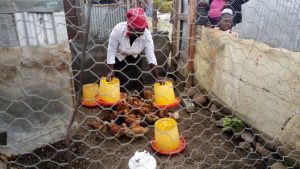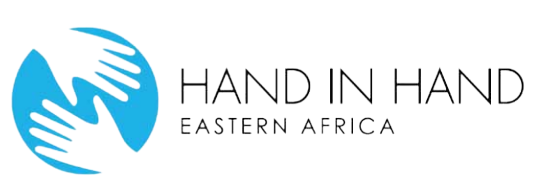
Semi-intensive smallholder chicken raring is a common type of poultry production in the rural areas of Nakuru County. Poultry is a common sight at any rural home and it is cheaper to start and keep because chickens freely roam around homesteads and scavenge for food with very little supplementary feeding being provided. The indigenous chickens cause minimal destruction to the environment and require minimal external inputs.
Although the majority of smallholder households in Nakuru, keep indigenous poultry, this is considered as a part-time activity with only a few, if any, that are keeping indigenous poultry on commercial basis. Furthermore, productivity and production is very low leading to low and unplanned sales at the farm-gate level. However, looking at the differences between the minimum and the maximum production, and considering that it is a low input activity, potential for growth exists.
With the help of Hand in Hand trainers, about 35 poultry farmers in Langalanga, Nakuru County have been mobilized and received producer knowledge of methods of poultry feed formulation, disease prevention and breeding practices. The organization is also supporting the farmers to gain access to extension services from Nakuru County poultry Farmers’ Cooperative Union in terms of procuring the Kenya Agricultural Research and Livestock Organization (KARLO) chicks and marketing of the poultry products.

Every member will be required to purchase minimum of 20 KARLO improved indigenous (Kienyeji) chicks to add to the existing ones and target towards reaching 150 chicks as they progress. Each member will be required to raise Ksh 2000 towards purchasing the chicks.
The members are looking forward to form a CBO to enable them take up leadership and running of the initiative. They will be able to make independent decisions and set up a policy framework to guide their operations.

